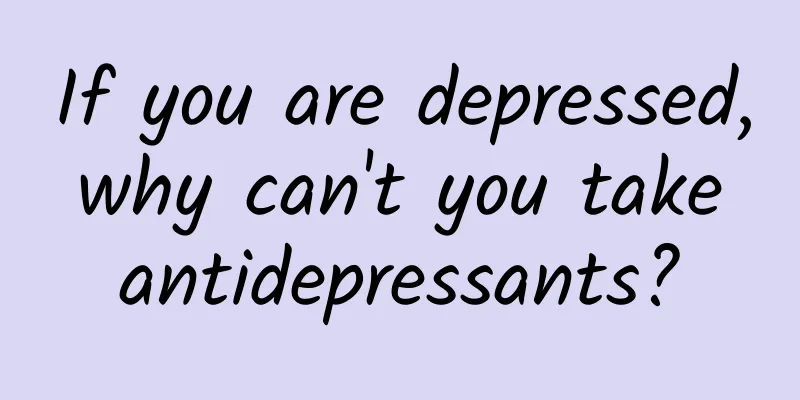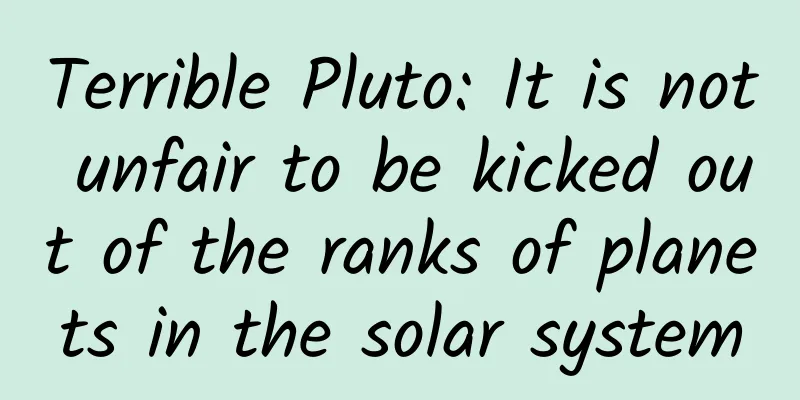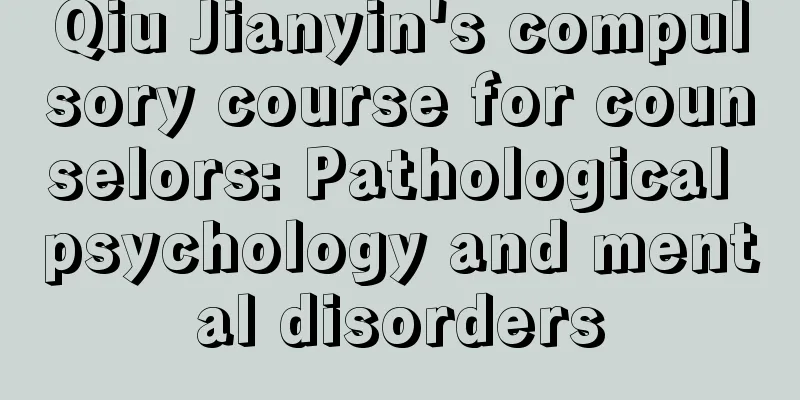If you are depressed, why can't you take antidepressants?

|
This is the 3722nd article of Da Yi Xiao Hu Aunt Zhang's son is handsome, smart, and has a good job. He is the "other people's child" that parents often talk about. However, for some reason, he has been frowning and sighing recently. He no longer likes the games and sports that he used to be interested in. He doesn't like to talk and doesn't go out. Aunt Zhang's nephew suffers from depression and has similar symptoms. She thought, "My son must have depression too." Considering her son's future and privacy, Aunt Zhang asked for her nephew's medicine for her son. After taking the medicine for a week, there was no effect, and her son showed symptoms such as temper tantrums, so he went to the hospital for treatment. The doctor diagnosed "bipolar disorder-depressive episode" and did not recommend taking antidepressants. Aunt Zhang couldn’t understand why people who are depressed are not allowed to take antidepressants??? Q1: What is depression? Depression, also known as depressive disorder or unipolar depressive disorder, refers to a type of mood disorder caused by various reasons with significant and persistent low mood as the main clinical feature. Clinically, it mainly manifests as low mood, loss of interest and pleasure, decreased energy, difficulty concentrating, memory loss, slow thinking, low self-esteem, lack of self-confidence, sense of worthlessness, belief that the future is bleak, negative words and deeds, and symptoms such as sleep disorders and loss of appetite. Q2: What is bipolar disorder? Bipolar disorder refers to a type of mood disorder that clinically has both manic or hypomanic episodes and depressive episodes. Manic episodes are characterized by high mood, increased interest and motivation, and increased verbal behavior. Hypomania is similar to manic symptoms, but the severity of symptoms and the level of social function impairment do not reach the level of manic symptoms (for example, the patient's professional ability is slightly impaired or not impaired). Depressive episodes, on the other hand, have core symptoms such as low mood, decreased interest, fatigue, and slow thinking and behavior (similar to the manifestations of depression). Q3: Drug treatment for depression Patients with depression are treated with antidepressants such as paroxetine, escitalopram, venlafaxine, mirtazapine, etc. During the entire clinical phase, symptom clusters that meet the diagnostic criteria for manic or hypomanic episodes should not appear. Once they appear, they should be diagnosed as bipolar disorder. Q4: Drug treatment for bipolar disorder According to the domestic and international guidelines for the treatment of bipolar disorder, it is recommended that patients with bipolar disorder use mood stabilizers as the main treatment drug regardless of the type of episode. Commonly used mood stabilizers include lithium carbonate, valproate, lamotrigine, etc. Atypical antipsychotic drugs such as quetiapine and olanzapine also have good mood stabilizer effects, so they are also commonly used in the treatment of bipolar disorder. Avoid using antidepressants to prevent mania and frequent episodes, or rapid cycling. For patients with bipolar disorder-depressive episodes who are ineffective with mood stabilizers alone, and whose depressive symptoms are severe, antidepressants can be combined with mood stabilizers, but attention should be paid to the risk of turning into a manic episode. Therefore, antidepressants should not be used to treat depressive episodes. Q5: The recognition and awareness rates of bipolar disorder are low Because hypomanic episodes are mild, they have little or no impact on social functions, and some even have a positive impact on social functions, so many patients or people who know about it do not feel abnormal. In addition, most hypomanic patients do not admit that they are sick, try to describe their symptoms as mild as possible, and refuse treatment. Moreover, most bipolar disorder patients first develop depression. Therefore, bipolar disorder is often missed or misdiagnosed. Each of us has emotions, and emotions are the state of our inner feelings expressed through the body. A good emotional state helps individuals to exert their enthusiasm, while a negative emotional state makes people lazy, negative, and unmotivated. Continuous overly excited or overly depressed emotional states are pathological emotional states. When relevant symptoms appear, it is recommended to seek help from professional medical institutions to avoid delaying the disease or causing secondary damage. Author: Shanghai Fengxian District Mental Health Center Psychiatry Department Attending Physician Wang Jinde |
Recommend
Full-network marketing, one marketing matrix can do it all!
Concepts in the marketing field are different fro...
"Laso" has made new discoveries! The world's first accurate observation of the entire afterglow of a once-in-a-millennium gamma-ray burst
Produced by: Science Popularization China Author:...
[Business Closed Loop Design] Analysis of Dingxiang Doctor's Business Model
Since the short video industry shifted to the mob...
Event Promotion: How to create a hit event?
This chapter will take the recent mini program fi...
Can the mini program name be modified after it is confirmed? How to modify the name of a mini program?
Q: Can I modify the name of a mini program after ...
Return to the Deep Blue: Whales are mammals, so how can they swim in the ocean like fish?
Overview Unlike fish, whales are secondary aquati...
This generalized inverse matrix was reinvented by Penrose at the age of 24 | N-word rough linear algebra
Many students feel confused and painful when they...
6 key points for event planning and promotion!
How to create an event that will go viral on WeCh...
Is it a tragedy that China Unicom and China Telecom do not have FDD licenses in the 4G era?
Recently, the online article "China Unicom fo...
Supercritical steam? Hidden fourth star? Kepler telescope discovers extrasolar water world
After years of observation, exoplanets are full o...
Due to the continued high temperature, many hairy crabs did not survive...
Author: Fluent The highest temperature this week ...
Are Chinese rockets really starting to burn "coal"? | Expo Daily
Your best "insider" in the scientific c...
Residents of the solar system, we are now looking for a name for the "Advanced Space-Based Solar Observatory" that humans are about to launch.
"The sun is just the primary puzzle of the u...









